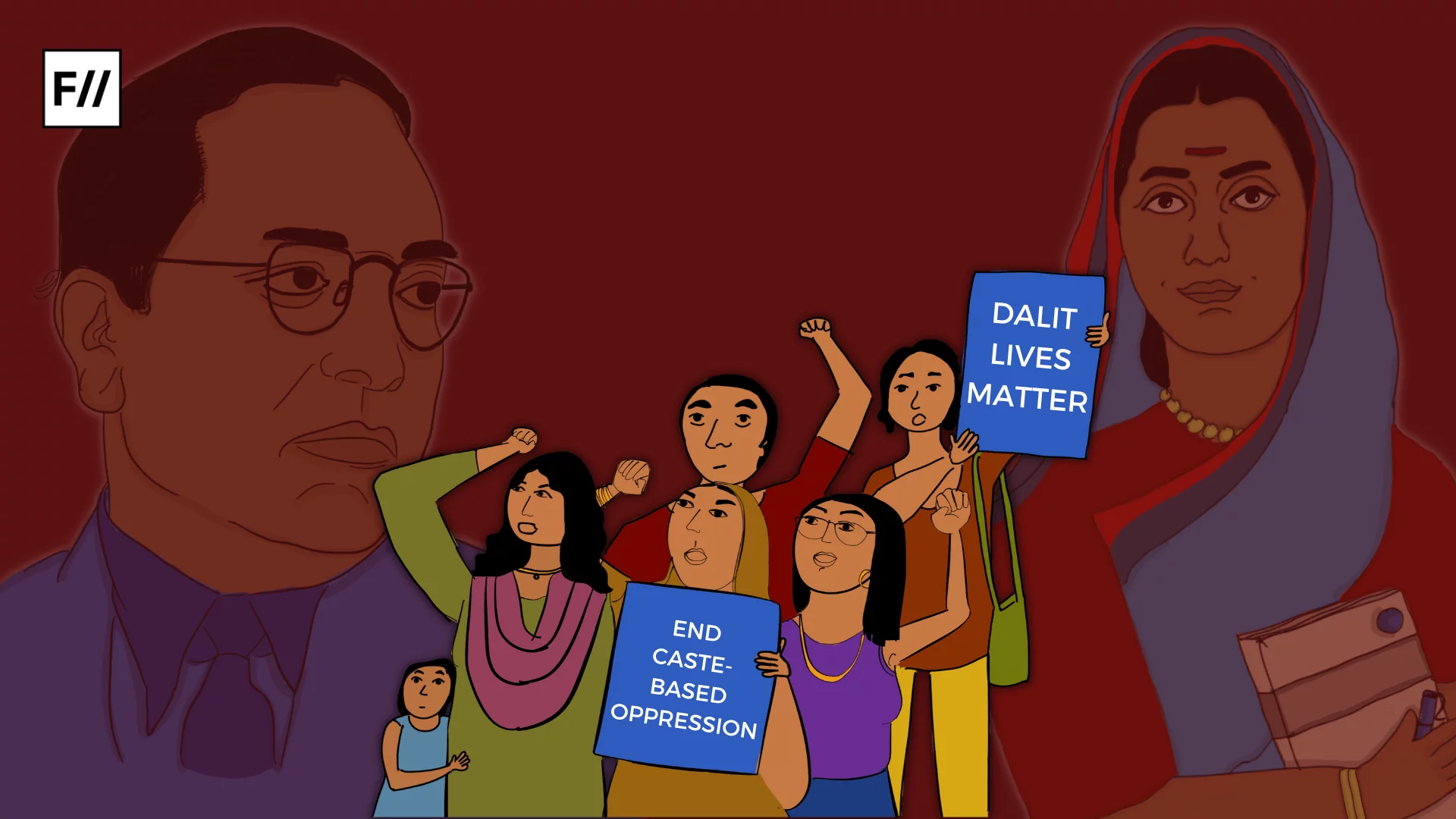The two day ‘Dalit Women Speak Out’ Conference, held on 19th and 20th December at Savitribai Phule Pune University (SPPU) was jointly organised and conducted by All India Dalit Mahila Adhikar Manch (AIDMAM) and Krantijyoti Savitribai Phule Women’s Studies Centre, SPPU (KSPWSC). There were over 450 delegates and participants present at the conference, along with 35 volunteers from KSPWSC, who worked round the clock to ensure that the conference runs smoothly.
A space for and by Dalit Women
I would like to say at the outset that my role in the conference was limited to that of a volunteer. Throughout the preparation and during the conference, we were reminded that this space was meant for and organised by Dalit women; and that the plenary, sessions, activities, programmes, lectures, were all organised for and conducted by Dalit women. It was made clear that our role as someone belonging to a dominant caste was to provide support in any form other than taking up leadership roles.
Most of the volunteers were engaged with the task of providing administrative, management, logistical, and contingency support. Be it travel, accommodation, food, venue, or management and organisational work on the day of the conference, the volunteers performed whatever roles they were assigned.
The conference was spanned two days with a range of activities, lectures, sessions, talks, among others. Except for the plenary, which was open to all participants and volunteers, all other breakout sessions were to be attended only by those who identified as Dalit or from other marginalized identities.
 Not just a Conference!
Not just a Conference!
Much of the work started days before the conference, and I would like to share an incident that happened at the registration desk a day before the conference. At one of the accommodation venues along with my friend and volunteer Sheena, we were doing registrations. Many women were still arriving, hustling here and there. We were trying to get hold of Kiruba Munusamy who was to help us with the registrations. We could see her running all over the place, greeting and hugging women, talking to them about the last time they met years ago, and feeling so nostalgic. As Kiruba finally managed to make it to the desk, she said, “I am so sorry this is an emotional time of all of us. We are meeting our friends after years. This is a very emotional time.” Her wide smile was enough to make me realise how much this space meant to her and everyone else present there. This was way bigger than a conference!
Participants, delegates came from all over the country. They came in groups and as individuals both. One of the unique aspects about the conference was that it wasn’t dominated by academicians. The population was a mix of activists, leaders from different states and cities, and many women who were active agents in their struggle against caste discrimination across the country.
Some women even came with their toddlers, mother-in-laws, and families. It was indeed a safe space gathering for all these women. As women kept walking in, one could hear a bunch of languages and sense the exhilaration that this diverse world of its own was to bring! Somewhere between the endless cheers, break-free dances and shouts of Jai Bhim and Jai Savitrimai, everyone realised it was so much more than a mere conference.
It was a festival. A celebration. History that was being written and shaped by them. Something that was to stay with them for a long long time to come!
The Plenary and Other Activities
On entering the hall where plenary was to be conducted, one could see a huge poster of Dr. Babasaheb Ambedkar and Savitribai Phule, with the tagline “Dalit Women Speak Out” and a quote by Dr. Ambedkar “I measure the progress of a community by the degree of progress which women have achieved.” The walls had huge posters of Phoolan Devi, Periyar, Savitribai Phule, Jyotiba Phule, and Dr. Ambedkar. With this backdrop, the excitement level and emotions were both running high among the delegates. Anyone present at the venue could sense the immense satisfaction, pride and happiness that they were feeling.
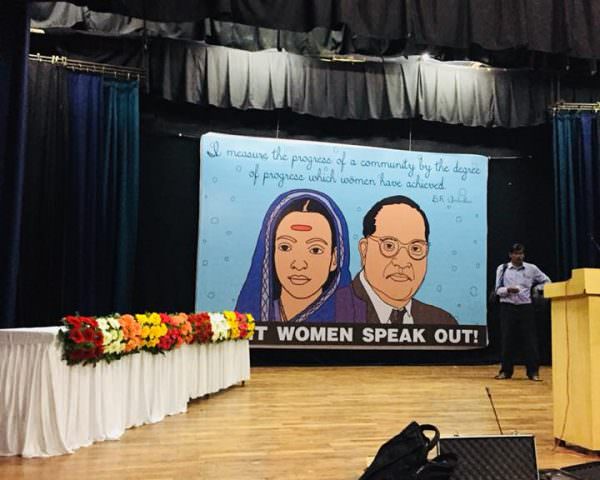
Within minutes of starting the conference, anchored by Asha Zech, General Secretary of AIDMAM, the hall was swaying and leaping to the beats of ‘Shakti Parai Group’. (The Parai has a caste-aligned history in Tamil Nadu. The instrument is one of the oldest forms of drums in India, and is associated with the Dalit community). The place instantaneously turned into a carnival, full zingaat style!
As the plenary progressed, the main focus stayed on ways of building a transformed nation for Dalit women, talking about the prominence of the moment in which this was happening, and Dalit women’s journey from pain to power in achieving full humanity. In the two days, the plenary also saw performances by the wonderful Bant Singh – a strong Ambedkarite revolutionary singer from Punjab; Yalgaar, a Mumbai based Ambedkarite cultural troupe; Dhamma wings, India’s first Buddhist rock band; and Awaazika, another Ambedkarite group from Uttar Pradesh.
The opening ceremony on day one was graced by the presence of Radhika Vemula, Rohith’s mother who spoke about her dreams, aspirations, and life. She said, “I had to ask my husband 3-4 times even for Rs 10-15 to buy medicines. So I decided to earn money and started stitching clothes. I always wanted to study but could not go to school or college, because of our family’s poverty and family background didn’t have the money. Even before I read Dr Babasaheb Ambedkar, I was keen for both financial independence and education. So when I got some time and freedom, when my kids were also in school, I started to study. At one point, Rohith was in the first year of a college and I was in the second year. But after Rohith’s untimely death, my education has taken a backseat. But I help girls around me by giving study materials to them and stitching their school uniforms without charging money. I want all of you to go school and college, as Dr Babasaheb Ambedkar said.”
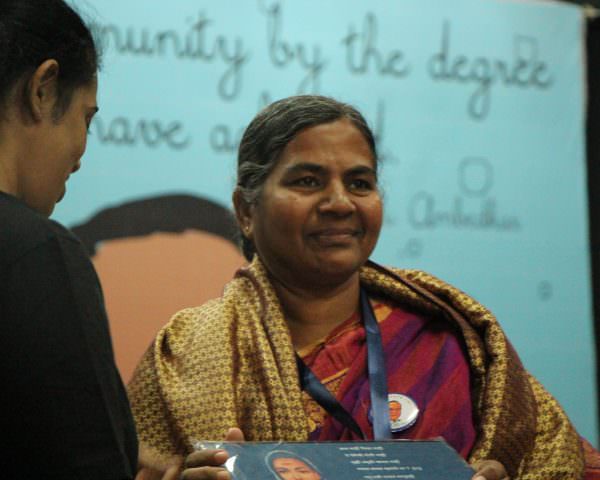
Other plenary speakers were Ruth Manorama, Joopka Subhadra, Christina Dhanraj, Manisha Bangar, Pradnya Daya Pawar, Maya Pramod, Grace Banu, and Gauri Kumari.
After the plenary, as the breakout sessions started (more on the breakout sessions later), parallel activities were being conducted. There were film screening workshops, puppetry workshops, theatre workshops, and writing workshops. Spaces were also assigned to other activities like the ‘Gallery’ where photos of prominent Dalit women leaders from different regions were displayed; a ‘Digital Hub’ organised by Project Mukti and Feminist Approach to Technology (F.A.T); a ‘Care Corner’ which as an open space for meditation, health screening, healing techniques, counselling, therapy and wellness; a ‘Live Art Corner’ by Muthamizh where art supplies were made available; and a ‘Dialogue Space’ for the participants to interact with collaborators, funders to get information about future opportunities.
Dalit Camera: Through Untouchable Eyes and Video Volunteers were the Media Partners for the conference.
 The Break-out Sessions
The Break-out Sessions
One of the major goals of the conference was to amplify Dalit voices. As the tagline went, “Weaving Diverse Voices Towards Transformative Politics“, the conference was designed to strengthen marginalized voices; loud and clear in a safe space. All the break-out sessions over the two days were held with the objective of enabling Dalit women to speak out without fear. Only women who identified as Dalit were allowed to attend the break-out sessions. Everyone else who identified as dominant caste were requested to take up any task that would assist the speakers, delegates and participants.
The break-out sessions were on a range of topics like sex work, local governance, access to justice, Dalit women’s rights, Dalit women entrepreneurs, feminism, higher education, international advocacy, engagement with Dalit men and boys, allyships, academia, history, and so on.
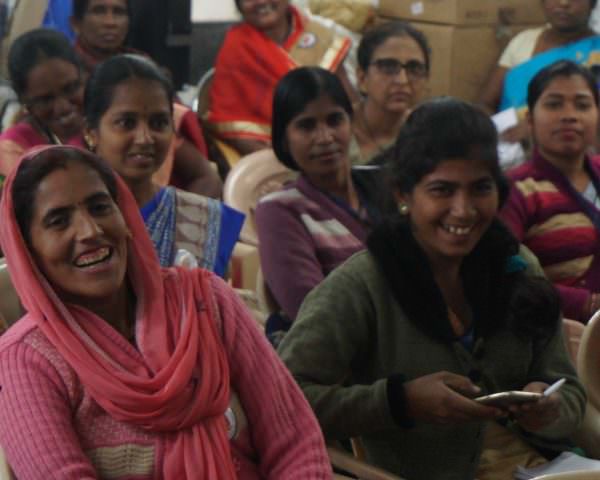
The conference also included documenting interviews of Dalit leaders and activists. As a volunteer, I was lucky to interview Gauri Kumari, the first Dalit woman lawyer in Bihar to hold the position of the member of the Juvenile Justice Board. Everyone interviewed carried with them the determination only they could muster to hold on to and live with. These were the women who broke chains, walked without fear, climbed and conquered mountains, and continue smashing cis-brahminical patriarchy like a boss!
From Pain to Power
The conference recognized the challenges that have arrived with the changes in India’s political landscape, which have eventually brought greater insecurity in the lives of Dalit women. It has affected the Dalit movement’s quest for liberation, and also changed the way one pursues research in the field of caste and gender. The two days filled with excitement focused on capturing and defeating the loneliness that Dalit women often face in their long battle against caste-based and gender discrimination.
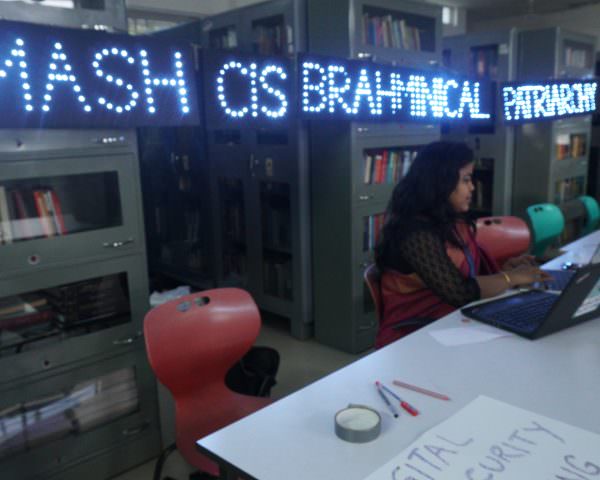
This conference filled with compassion, love, and power to transform the world was indeed a space for Dalit women to celebrate their lives and struggles; to stand tall as active agents of their own lives, and dance and speak their heart out fearlessly!
Also read: In Conversation With Anju Singh From All India Dalit Mahila Adhikar Manch (AIDMAM)
All images courtesy Dalit Women Speak Out conference. Follow them on Facebook and Twitter.
About the author(s)
Nupur is a graduate in Women’s Studies. Interests include research, academia, gender, sexuality and politics.
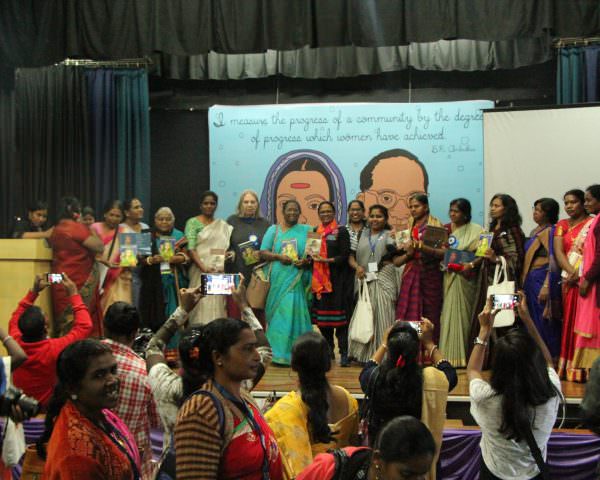
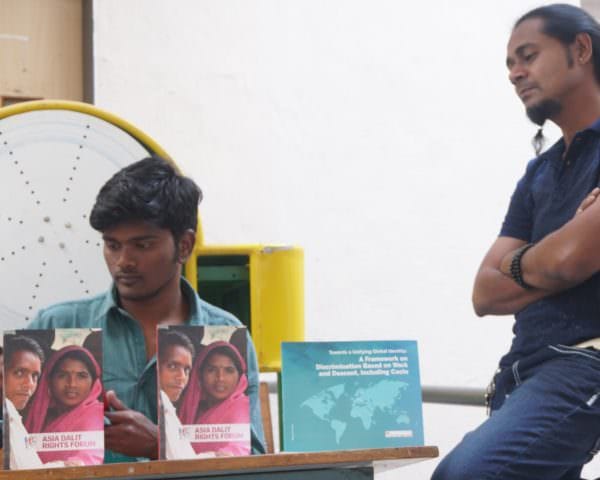 Not just a Conference!
Not just a Conference!  The Break-out Sessions
The Break-out Sessions

